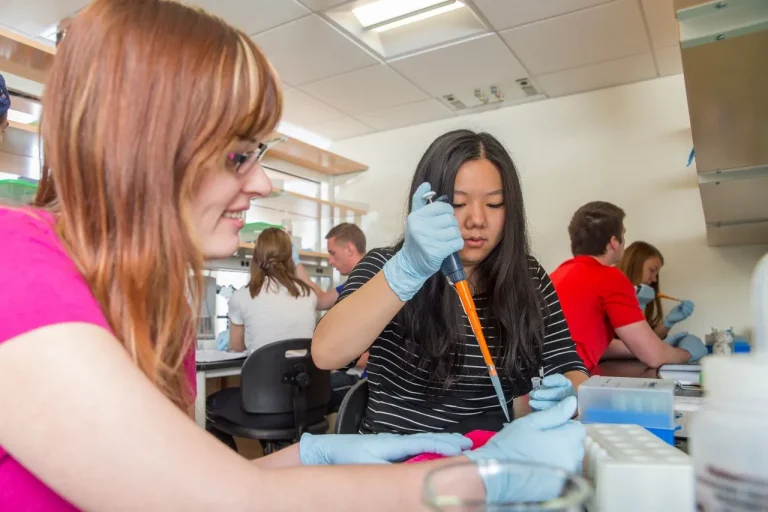What Best Describes The Limits Of Science?
Science has profoundly shaped our understanding of the natural world and led to countless innovations that have improved human life. However, there are inherent limits to what science can explain or accomplish.
Identifying the boundaries of scientific inquiry is key for having realistic expectations of science.
If you’re short on time, here’s a quick answer to your question: The primary limits of science stem from its reliance on empirical evidence, the complexity of natural phenomena, and the influence of human biases and social factors.
In this article, we’ll explore key perspectives on the limits of science and what they reveal about the scope and boundaries of scientific knowledge.
The Empirical Basis of Science
Science, at its core, relies on the empirical basis of evidence. This means that scientific theories and explanations are built upon observable evidence that can be measured, tested, and replicated. In order for a scientific claim to be considered valid, it must be supported by empirical data gathered through systematic observation and experimentation.
This emphasis on empirical evidence ensures that scientific knowledge is grounded in reality and can be objectively evaluated.
Science Depends on Observable Evidence
Observable evidence forms the foundation of scientific inquiry. Scientists use their senses, instruments, and technology to gather data that can be observed and measured. Whether it’s through telescopes, microscopes, or particle accelerators, scientists strive to collect evidence that is tangible and verifiable.
This reliance on observable evidence allows scientific theories to be tested, refined, and expanded upon over time. Without observable evidence, scientific claims would lack credibility and would be mere speculation.
Supernatural Explanations are Excluded
One of the defining characteristics of science is its exclusion of supernatural explanations. Science seeks to understand the natural world and explain phenomena through natural processes and laws. Supernatural explanations, such as those involving deities, magic, or divine intervention, fall outside the realm of scientific inquiry.
This is because supernatural explanations, by their nature, cannot be tested or observed in a controlled and repeatable manner. As a result, scientific explanations are limited to the natural world and do not include supernatural or metaphysical entities.
Speculative Ideas Require Proof
While science encourages curiosity and exploration, it also demands proof for speculative ideas. Scientists propose hypotheses and theories based on their observations and existing knowledge. However, these ideas must be supported by empirical evidence in order to gain acceptance within the scientific community.
This requirement for proof helps to ensure that scientific knowledge is reliable and accurate. It prevents unfounded or unsupported ideas from being presented as scientific fact. By demanding proof, science maintains a high standard of rigor and credibility.
The Inherent Complexity of Nature
Science is a powerful tool for understanding the world around us, but it also has its limits. One of the major challenges scientists face is the inherent complexity of nature. The universe is a vast and intricate web of interconnections, and this complexity can make it difficult to fully comprehend and predict the behavior of natural phenomena.
Chaotic and Non-Linear Systems
One aspect of this complexity is the presence of chaotic and non-linear systems. These systems are highly sensitive to initial conditions, meaning that even small changes can have significant and unpredictable effects.
This makes it challenging for scientists to make precise predictions about the behavior of these systems. Chaos theory, which studies these types of systems, has provided valuable insights, but there are still many unanswered questions.
For example, weather forecasting is a classic example of the limitations of science. Despite advances in meteorology, accurately predicting the weather beyond a few days is notoriously difficult. This is due to the complex interactions between the atmosphere, land, and oceans, which give rise to chaotic and non-linear behavior.
While scientists continue to improve their models and predictions, there will always be inherent uncertainty in weather forecasting.
Emergent Properties
Another challenge is the emergence of properties that cannot be explained solely by studying the individual components of a system. Emergence occurs when new and unexpected properties arise from the interactions of simpler elements.
These emergent properties can be seen at all levels of organization, from the behavior of a single cell to the workings of an entire ecosystem.
For example, the human brain is made up of billions of individual neurons, yet it gives rise to consciousness, imagination, and creativity. Understanding how these emergent properties arise from the interactions of neurons is still a frontier of scientific research.
It requires studying the brain at multiple scales, from the molecular level to the network level, and integrating knowledge from fields such as neuroscience, psychology, and philosophy.
Historical Contingency
Finally, historical contingency plays a role in limiting the scope of scientific knowledge. Science is a cumulative endeavor, building upon previous discoveries and theories. However, the path that scientific progress takes is influenced by a variety of factors, including societal influences, available technology, and individual biases.
For example, the discovery of penicillin, one of the most important breakthroughs in medicine, was a result of a fortunate accident. Alexander Fleming noticed that a mold had contaminated one of his bacterial cultures and observed that it inhibited the growth of bacteria.
This chance observation led to the development of antibiotics. If Fleming had not made this discovery, it’s possible that the medical field would have taken a different path.
The Influence of Human Biases and Values
Science is often seen as an objective and unbiased pursuit, but it is important to recognize that human biases and values can still have an impact on scientific research and its findings. These biases can arise from cognitive and cultural factors, ethical considerations, and subjectivity in interpreting data.
Cognitive and Cultural Biases
Human beings are not immune to biases, and scientists are no exception. Cognitive biases, such as confirmation bias or the tendency to seek out information that confirms preexisting beliefs, can unintentionally influence the way research is conducted and interpreted.
Cultural biases, on the other hand, can shape the questions scientists ask and the hypotheses they develop. For example, a society that values economic growth may prioritize research on improving productivity over studying the environmental impact of certain industries.
Ethical Considerations in Research
Ethical considerations play a crucial role in scientific research. Researchers must adhere to strict ethical guidelines to ensure the well-being and rights of human subjects, as well as the ethical treatment of animals.
Additionally, ethical considerations extend to the potential consequences of research findings. For instance, if a study reveals a new technology that could have significant social implications, scientists must consider the ethical implications of its use and potential unintended consequences.
Subjectivity in Interpreting Data
Interpreting scientific data is not a purely objective process. Scientists bring their own perspectives, experiences, and values to the table, which can influence how they interpret the data. This subjectivity can lead to different interpretations and conclusions drawn from the same set of data.
It is essential for scientists to be aware of their own biases and strive for objectivity, but it is also important for the scientific community to embrace diverse perspectives and engage in critical discussions to ensure the reliability and validity of scientific findings.
It is crucial to acknowledge these influences of human biases and values in scientific research. By being aware of and actively addressing these biases, scientists can strive for more objective and reliable findings.
The scientific community as a whole must also foster an environment that encourages open dialogue and the consideration of diverse perspectives to ensure that the limitations imposed by human biases and values are minimized as much as possible.
Conclusion
Identifying the limits of science can prevent overreach and lead to more judicious applications of scientific knowledge. Key constraints stem from science’s reliance on evidence, the complexity of natural phenomena, and the inescapable influence of human values and biases.
While undeniably powerful, science alone cannot answer all questions. Recognizing its inherent boundaries allows for maintaining reasonable expectations of what science can achieve. This enables directing scientific efforts toward their most productive domains of inquiry.







